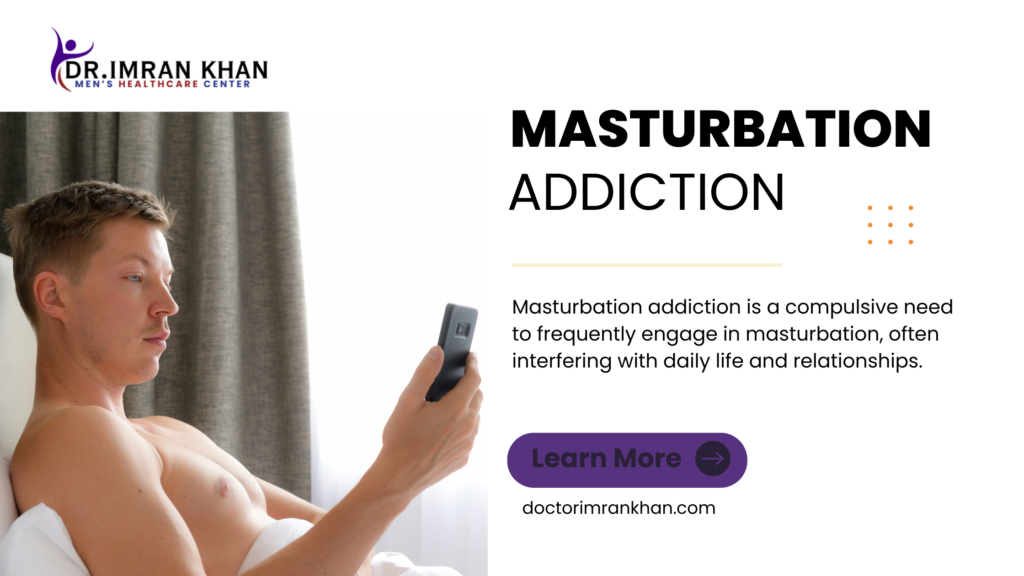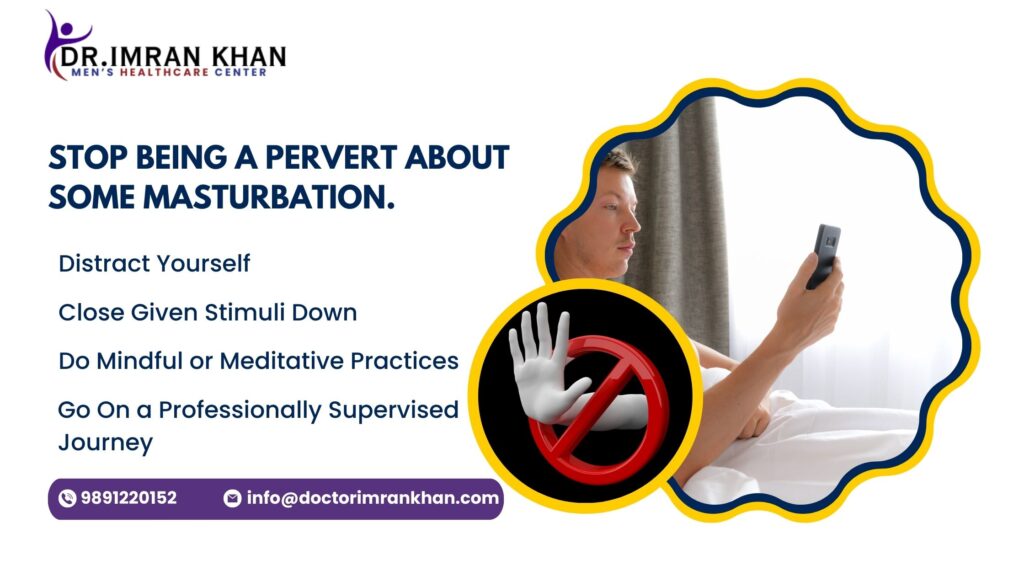
Masturbation is a natural thing engaged in by most people. The majority do it considering it a normal element of their sexual behavior. However, if a person’s indulgence shifts from intensive natural behavior to addictive behavior, the cycle is termed masturbation addiction. Being knowledgeable about how to tell when practice moves from a good habit into addictive behavior needs to exist for humans for both their mental and physical health.
What Is Masturbation Addiction?
Masturbation addiction has identified persons, compelled to masturbate uncontrollably, often at an expense of personal, social, and professional responsibilities. Addiction to masturbation in moderation is harmless. However, excessive masturbation brings diverse undesirable consequences.
Consequences of Masturbation
Masturbation excessively may result in several flaws within the life of an individual, such as:
Physical Issues: Fatigue, soreness, or chafing due to overstimulation.
Loss of Sexual Sensitivity: Excessive masturbation may lead to loss of sensitivity in sexual activity.
Emotional/Mental Distress: Guilt feelings, shame, or anxiety because of compulsive behavior that cannot be monitored.
Interference with Daily Life: Addiction leads to neglecting work, relationships, and other responsibilities.
Causes of Masturbation Addiction
Several factors can contribute to the development of a masturbation addiction:
Stress and Anxiety: Masturbation as a way of coping with stress or emotional problems.
Easy Access to Pornography: The ease of access to pornography content can facilitate compulsive behavior.
Psychological Dependencies: Hidden mental illnesses may predispose an individual to addiction.
Stop being a pervert about some masturbation.
Here are strategies and steps to consider as the first major steps on how to get it back and control yourself or someone you know struggling with masturbation problems:

Distract Yourself: Do stuff that helps you avoid idle time and solitude.
Go On a Professionally Supervised Journey: This could be done with either a therapist or counselor who can assess and work through your case in more personalized ways, providing necessary support when you need it.
Do Mindful or Meditative Practices: These can help you get away stress, along with developing self-control.
Close Given Stimuli Down: Keep away from porn and things like that which attract and motivate this behavior.
Healthy Alternatives to Reduce Urges
Exercise Regularly: Engaging in physical activity can help redirect your energy in a positive manner.
Engage in Hobbies: Exploring new interests can keep your mind engaged and distracted.
Social Interaction: Spending quality time with friends and family can help alleviate feelings of loneliness and boredom.
Conclusion
Masturbation is a normal aspect of human sexuality, but when it becomes an addiction, it can significantly impact one’s life. It’s important to recognize the signs and adopt healthy strategies to break the cycle. If the problem continues, seeking professional help is a proactive approach to recovery and overall well-being.

